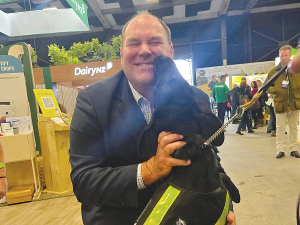That's Associate Agriculture Minister Andrew Hoggard's response to ongoing farmer frustration around implementation of regional plans.
Hoggard says the Government is working to get better regulations in place, but the situation isn't helped by some regional councils ploughing ahead under the old system.
He says these councils don't recognise the work being done by the coalition Government to change the rules.
"I don't know - do they feel too afraid that environmental activists and lawyers would take them to court if they don't keep pushing this stuff through?" Hoggard told Dairy News.
Getting consent renewals remains a big issue for many farmers. Hoggard says some renewals were just not being issued for unknown reasons, and a small group of extensive farmers risked being placed into a costly notified consent, just so they could carry on farming.
The costs that some of these landowners are being put through is eye watering, he adds.
He says changing the rules takes time and he hopes that regional councils can hold fire and wait until the new rules and regulations are in place.
"Let us get the new rules and regulations in place and then you can start moving on this stuff again, knowing that in all likelihood a lot of the heavy-handed rules and regulations will be gone."
Federated Farmers local government spokesperson Sandra Faulkner says councils can save money by sticking to their lane and leaving climate policy to central government.
"Councils should stop duplicating effort, and wasting ratepayer dollars, by setting climate policies."
Federated Farmers supports RMA and local planning reform that reduces delays, costs and uncertainty, and utilises tools like farm plans rather than consents, she says.
Meanwhile, Hoggard says he was happy to see the positive vibe among farmers at Fieldays.
He says dairy farmers are buoyant with a $10/kgMS milk price last season and a potential consecutive $10 payout this season.
However, he adds that farmers have concerns around geopolitical issues like wars and spats around tariffs.
"We've got a really volatile world at the moment, so things could change, but I'm hoping that common sense will prevail and we can keep doing well in the agriculture sector," he says.
"Because it's almost a universal positive story across the board for a wide range of our agricultural products: that's what this country needs - strong agricultural performance to move the economy forward."











